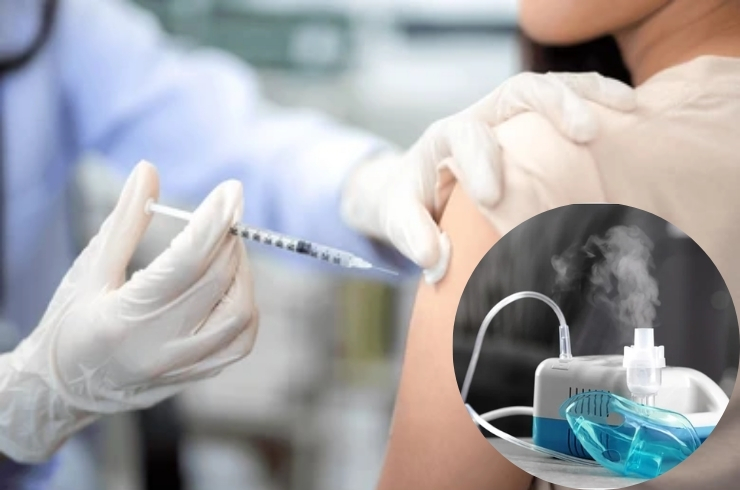Nebulization & Vaccination

Nebulization & Vaccination – Essential Components of Respiratory Care
Nebulization and vaccination are two fundamental components of preventive and therapeutic care in respiratory medicine. They serve different but complementary roles in the management and prevention of respiratory illnesses across all age groups.
Nebulization is a method of delivering medication directly to the lungs in the form of a fine mist. This is particularly useful for patients with asthma, chronic obstructive pulmonary disease (COPD), bronchitis, and respiratory infections. It provides rapid relief by opening airways, reducing inflammation, and loosening mucus. Commonly used medications in nebulization include bronchodilators (like salbutamol), corticosteroids, and antibiotics. Nebulization is especially beneficial for young children, elderly patients, or those who have difficulty using inhalers. It is often administered during acute attacks or flare-ups and can also be used for maintenance therapy in chronic conditions.
Vaccination, on the other hand, is a cornerstone of preventive respiratory care. Vaccines help protect individuals from infections that can severely affect the lungs, such as influenza, pneumococcal disease, pertussis, and COVID-19. For people with chronic respiratory illnesses, vaccinations are crucial because infections can trigger exacerbations and lead to serious complications. Annual flu shots, pneumococcal vaccines, and timely booster doses are strongly recommended for high-risk groups, including children, seniors, healthcare workers, and patients with asthma or COPD. Vaccination not only protects individuals but also reduces the spread of contagious respiratory illnesses in the community.
In clinical settings, nebulization and vaccination are often provided together as part of comprehensive respiratory care services. During an OPD (Outpatient Department) visit, patients may receive nebulization for immediate symptom relief and vaccines for long-term protection. This dual approach ensures both short-term management and long-term disease prevention.
Furthermore, educating patients about the correct use of nebulizers and the importance of staying up to date with vaccinations is a key responsibility of healthcare providers. This helps improve compliance, reduce hospital visits, and enhance quality of life for patients with respiratory conditions.
In conclusion, nebulization and vaccination are essential, evidence-based practices in respiratory medicine. While nebulization treats and controls symptoms, vaccination prevents infections that can cause or worsen lung diseases. Together, they form a powerful strategy for improving respiratory health and preventing complications.